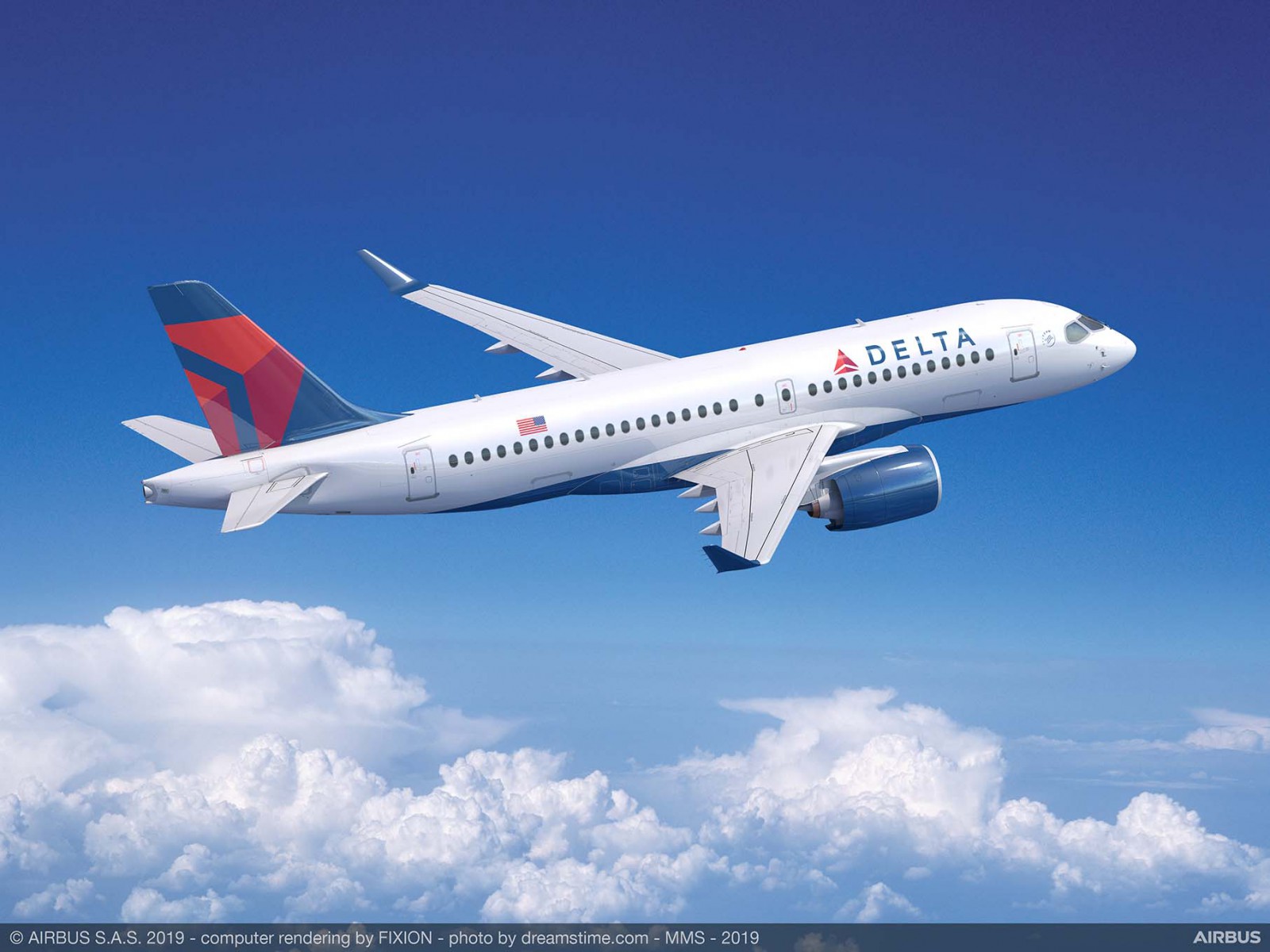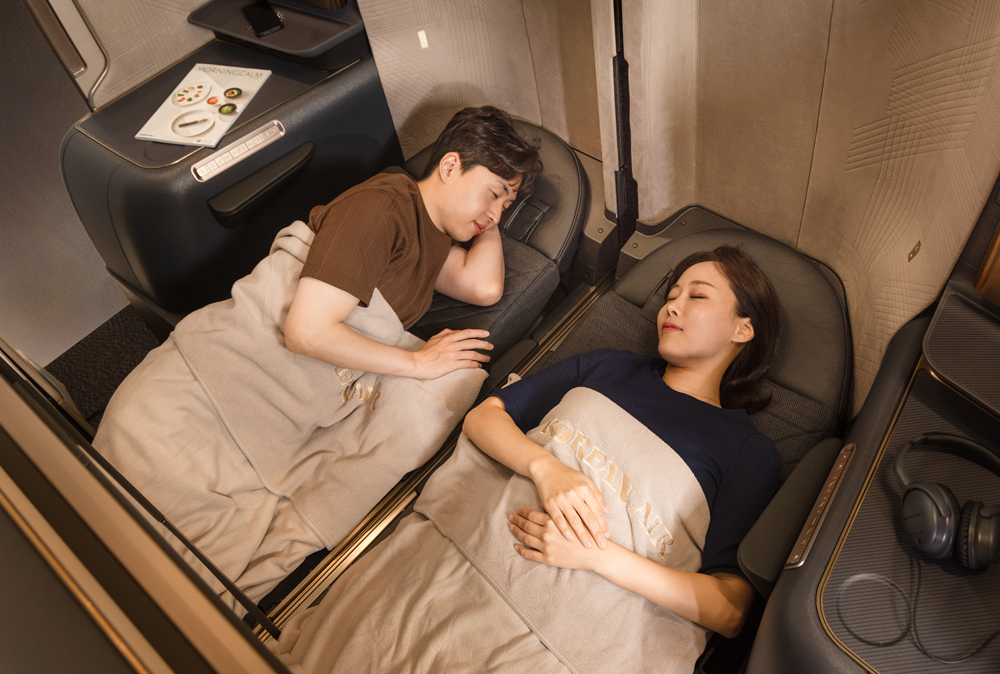Delta gives its A220s extra legs and orders five more
19 June, 2019
5 min read
By joining our newsletter, you agree to our Privacy Policy


Delta Air Lines has become the first airline to convert its A220 orders to longer-range versions of the regional jet as it booked five additional aircraft at this week's Paris Air Show.
Airbus announced in May that it was increasing the range of the A220 by up to 450-nautical miles, allowing to connect Western Europe to the Middle East and Australia to Southeast Asia.
READ: Airbus extends the range of the A220.
The European manufacturer had also hinted it is looking at trans-Atlantic routes for the A220, although chief commercial officer Christian Scherer later downplayed the likelihood of that happening.
The aerospace giant said it had increased the maximum take-off weight (MTOW) of the A220 by 2,268 kg. This would increase the maximum range of A220-300 to 3,350nm and the A220-100 to 3,400nm.
Delta was the U.S. launch customer for the A220, placing an initial order for 75 aircraft in 2016 and booking an additional 15 in December 2018.
The five additional planes bring the number of orders placed by Delta to 95 A220s, including 45 A220-100s, which will be produced in Mirabel Quebec, and 50 A220-300s to be built at a new U.S. assembly plant now under construction in Mobile, Alabama.
In a separate arrangement, Airbus and Delta signed a non-binding memorandum of understanding for Delta TechOps to provide A220 component repair and material services for Airbus’ A220 Flight Hour Services maintenance-by-the-hour program.
Airbus said the strategic partnership would allow it to further enhance its successful A220 Flight Hour Services (FHS) program by building on Delta TechOps’ proven component repair and management capabilities and Airbus’ expertise in maintenance engineering, inventory management, and innovative services solutions.
The A220 entered service three years ago as the Bombardier C-Series and the program was acquired by Airbus in mid-2018 when it took a controlling stake Bombardier’s C Series Aircraft Limited Partnership (CSALP).
Airbus says the jet, which is purpose-built for the 100-150 seat market, has already beaten its initial performance targets, bring more flexibility and revenue potential to customers.
The manufacturer had an order book of more than 536 aircraft at the end of May and has set its sights on taking the lion’s share of a 100- to 150-seat t market estimated to represent at least 7,000 aircraft over the next 20 years.
Operators other than Delta include Swiss International, AirBaltic and Korean Air, which has also indicated it may look at more A220s.
Korean Chairman Walter Cho told journalists at the recent International Air Transport Association annual meeting in Seoul that the company was “very satisfied’ with the performance of its A220-300s.
He said there were some glitches that needed to be ironed out but this was common for any aircraft from any manufacturer.
He saw a bright future for the aircraft and had given a positive response when contacted by other airline CEOs about the plane.
“I am very satisfied with the aircraft and it’s in our future definitely in our fleet,’’ he said. “We are right now looking at the demand changes within our short routes and I see a quite good usage of it the future.”
Cho said he was talking to Airbus about its support plans in Asia and it was possible Korean would look at a stretch version of the plane.
He noted Korean already had orders for the Boeing 737 MAXs and Airbus neos, although he observed these served different markets to the A220.
"Ten aircraft is little too small so I guess it is a possibility but I don't know yet,'' he said.
Separately, IAG announced a firm order for 14 of the newly launched A321XLRs.
READ: Airbus launches super fuel efficient A321XLR
Eight of these are destined for Iberia and six for Aer Lingus.
IAG -- which is also the parent company of airlines such as British Airways, Level and Vueling -- provided a significant boost to Boeing during the show with a letter of intent to order 200 737 MAX aircraft.
But it is also one of the European manufacturer's biggest customers and Airbus said the latest agreement would ake overall orders from the group to 530 aircraft.
Due to enter service in 2023, the XLR is expected to deliver a range of up 4700nm 15 percent more than the A321LR with 30 percent lower fuel burn per seat compared with previous generation competitor aircraft. Airbus said this would enable Aer Lingus to launch new routes beyond the US East Coast and Canada, while Iberia would be able to operate new trans-Atlantic destinations and increase frequencies in key markets. Other routes touted for the XLR include India to Europe or China to Australia.Next Article
2 min read
Qantas triples profit but misses mark

Get the latest news and updates straight to your inbox
No spam, no hassle, no fuss, just airline news direct to you.
By joining our newsletter, you agree to our Privacy Policy
Find us on social media
Comments
No comments yet, be the first to write one.
